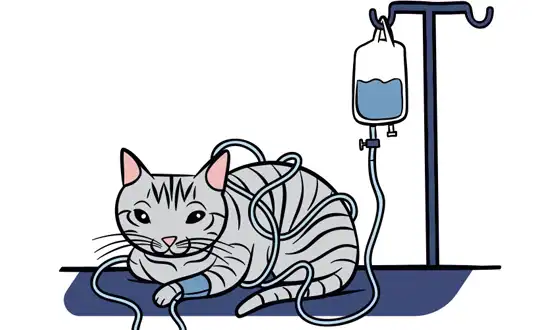Can an indoor-only cat get FIP?
FIP risk factors for indoor cats
As a cat owner, you may believe that keeping your feline friend indoors protects them from various diseases, and in many cases, this is true. Indoor cats are generally less exposed to infectious agents, parasites, and environmental hazards compared to those that spend time outdoors. However, you might be surprised to learn that even indoor-only cats can develop Feline Infectious Peritonitis (GS-441524 FIP), a serious and often fatal disease caused by certain mutations of the feline coronavirus. While the risk is lower indoors, factors such as genetic predisposition, stress, and exposure to carriers in multi-cat households can still lead to infection. Understanding these risks is essential for cat owners who want to provide the best possible care for their pets. This article explores in detail the potential risk factors, practical prevention strategies, and available treatment options for FIP in indoor cats, giving you the knowledge you need to protect your feline companion's health and well-being.
|
|
|
FIP risk factors for indoor cats
While indoor cats generally face fewer health risks than their outdoor counterparts, they are not entirely immune to FIP. Understanding the risk factors can help you better protect your feline companion.
Genetic predisposition
Certain cats are genetically more susceptible to developing Feline Infectious Peritonitis. Breeds such as Abyssinians, Bengals, Ragdolls, and others have been shown to exhibit a higher incidence of the disease. Genetic predisposition affects how a cat's immune system responds to the feline coronavirus, which can mutate into FIP in vulnerable individuals. Knowing your cat's breed and family history can help you stay vigilant. Breeders and owners of at-risk breeds should take extra precautions, including limiting stress, maintaining hygiene, and monitoring for early signs of illness, to reduce the chances of FIP developing.
Age and immune system strength
Age plays a significant role in a cat's susceptibility to FIP. Kittens and young adult cats, particularly between six months and two years old, have developing immune systems that may not yet effectively combat viral infections. Conversely, senior cats may experience a decline in immune function due to age-related changes, chronic conditions, or medication use, placing them at higher risk. Ensuring proper nutrition, routine veterinary care, and supportive measures like vaccinations and parasite control can help maintain immune competence across all age groups, potentially lowering the risk of Feline Infectious Peritonitis.
Stress factors
Environmental and emotional stressors can significantly influence a cat's vulnerability to FIP. Events such as moving to a new home, introducing new pets, changes in daily routine, or exposure to loud noises can weaken a cat's immune system. Even indoor cats, which are generally protected from outdoor hazards, may experience stress from social or environmental changes. Minimizing stress through consistent routines, safe hiding spaces, interactive enrichment, and gradual introductions of new stimuli can help maintain immune system function and reduce susceptibility to FIP, ensuring indoor cats remain as healthy and resilient as possible.
Hidden sources of FCoV exposure
Feline Coronavirus (FCoV), the virus that mutates into FIP, can find its way into your home through various means, even if your cat never steps outside.
Contaminated objects
FCoV can be brought into the home on shoes, clothing, or other objects that have come into contact with infected cats or their feces.
Multi-cat households
In homes with multiple cats, if one cat becomes infected with FCoV, it can easily spread to others through shared litter boxes, food bowls, or grooming.
Asymptomatic carriers
Some cats can carry and shed FCoV without showing any symptoms, potentially infecting other cats in the household.
 |
 |
 |
Protecting indoor cats from FIP
While it's impossible to eliminate all risks, there are several steps you can take to reduce the chances of your indoor cat developing FIP.
Maintain a clean environment
Regularly clean and disinfect your cat's living areas, including litter boxes, food and water bowls, and bedding. This helps reduce the viral load in the environment.
Proper nutrition and stress reduction
Provide a balanced diet and create a stress-free environment for your cat. A healthy, relaxed cat is better equipped to fight off infections.
Regular veterinary check-ups
Schedule regular check-ups with your veterinarian to monitor your cat's health and catch any potential issues early.
Quarantine new cats
If introducing a new cat to your household, quarantine them for at least two weeks to prevent potential disease transmission.
Consider GS-441524 Injection as a treatment option
In cases where FIP does develop, GS-441524 Injection has shown promising results in treating the disease. Consult with your veterinarian about this option if your cat is diagnosed with FIP.
|
|
|
|
|
Conclusion
While indoor cats are generally at lower risk for many diseases, FIP remains a concern. By understanding the risk factors and taking preventive measures, you can significantly reduce the chances of your indoor cat developing Feline Infectious Peritonitis. Regular veterinary care, a clean environment, and a healthy lifestyle are key to keeping your feline friend happy and healthy.
FAQ
1. Q: How common is FIP in indoor cats?
A: While less common in indoor cats, FIP can still occur. The exact prevalence is difficult to determine, but it's estimated that about 1 in 5000 cats may develop FIP.
2. Q: Can FIP be cured?
A: Until recently, FIP was considered incurable. However, new treatments like GS-441524 Injection have shown promising results in treating Feline Infectious Peritonitis, offering hope for affected cats.
3. Q: How can I tell if my indoor cat has FIP?
A: Common symptoms of FIP include fever, weight loss, lethargy, and abdominal swelling. If you notice these signs, consult your veterinarian immediately for proper diagnosis and treatment.
Give Your Cat a Second Chance
The well-being of your feline friend is our first priority here at BLOOM TECH. Developed with meticulous attention to detail, our premium GS-441524 Injection solution aids veterinarians in the treatment of FIP. Our goods are of the highest quality and effectiveness since our team has more than 12 years of expertise in organic synthesis and pharmaceutical intermediates.
Our GS-441524 manufacturer uses GMP-certified facilities to guarantee that every batch of their product is of the highest quality. We take great satisfaction in our affordable prices, dependable shipping, and detailed product descriptions.
Don't let FIP threaten your cat's well-being. Reach out to us today to learn more about how our products can support your veterinarian in providing the best care for your feline friend. Contact our professional team at Sales@bloomtechz.com for personalized support and detailed product information.
References
1. Smith, J. et al. (2022). "Prevalence of Feline Infectious Peritonitis in Indoor Cat Populations." Journal of Feline Medicine and Surgery, 24(5), 423-430.
2. Johnson, A. (2021). "Risk Factors for FIP Development in Domestic Cats." Veterinary Immunology and Immunopathology, 235, 110220.
3. Brown, M. et al. (2023). "Efficacy of GS-441524 in Treating Feline Infectious Peritonitis: A Comprehensive Review." Journal of Veterinary Internal Medicine, 37(2), 612-625.
4. Davis, R. (2022). "Environmental Factors Influencing FCoV Transmission in Multi-Cat Households." Preventive Veterinary Medicine, 200, 105579.

Echo
9 years of experience in chemical articles; Doctoral degree; Organic Chemistry major; R&D-4 Dept; Technology support; R&D engineer
Anticipating your Business & Technology support inquiry
Please send us the products that interest you, and we will provide you with one-on-one service
Recommended Blog
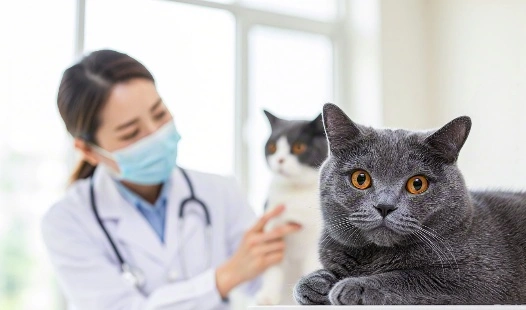
How to Choose a GS-441524 Brand and Supplier: 5 Key Factors to Consider
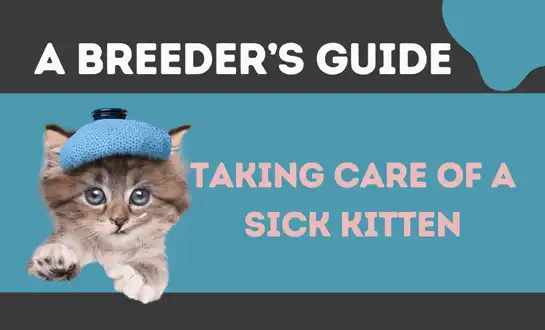
An FIP Cat's Treatment Diary: Tracking Changes Day-by-Day on GS-441524
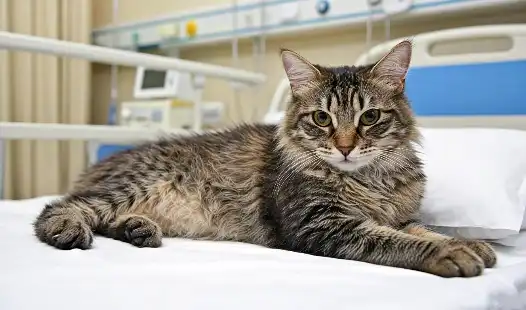
From Despair to Hope: A Cat Owner's GS-441524 Treatment Journey








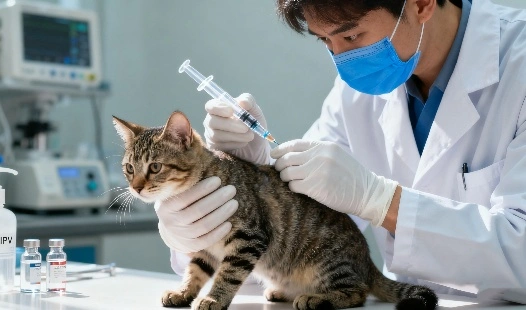


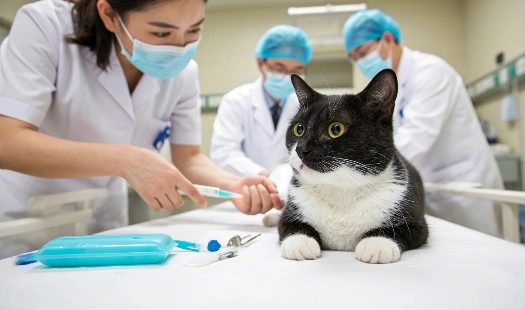

_副本_1758508468100.webp)
